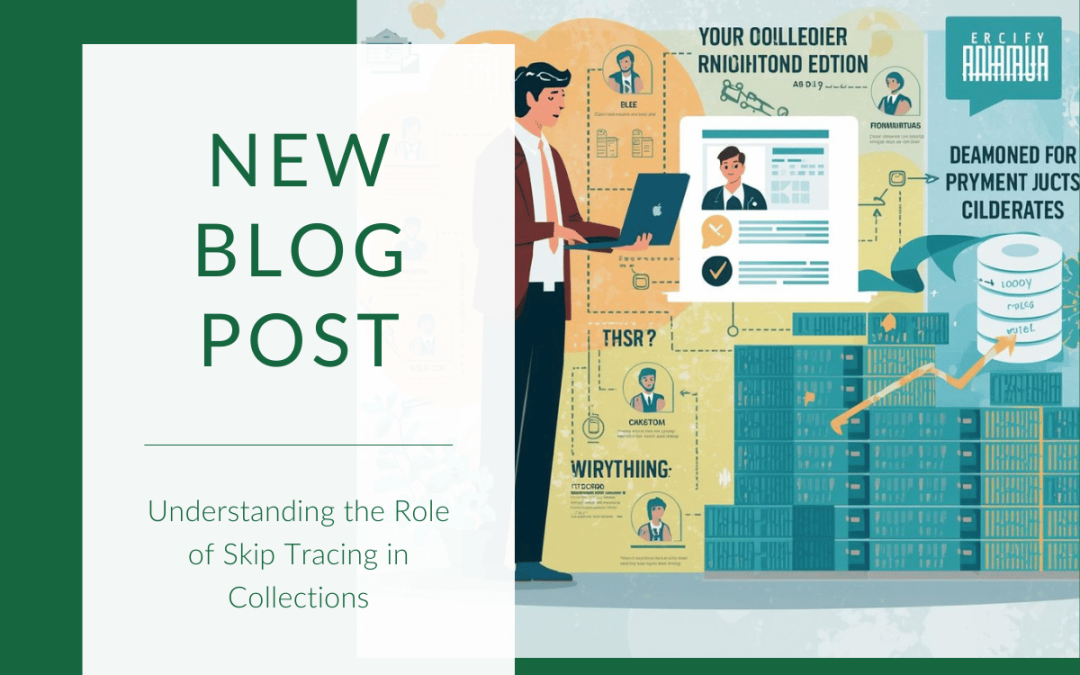Introduction
In 2025, businesses are facing an increasingly complex collections landscape. Debtors are more mobile than ever—relocating, changing jobs, or concealing assets to avoid repayment. For business owners and AR teams, simply sending invoices and making calls is no longer enough.
This is where skip tracing becomes a vital tool. Skip tracing combines specialized investigative techniques, advanced data tools, and industry expertise to locate debtors who might otherwise remain unreachable. It goes beyond basic follow-ups, enabling businesses to recover debts that might otherwise be written off.
In this blog, we’ll explore what skip tracing is, why it matters, how it strengthens debt recovery, common misconceptions, and expert strategies to leverage it effectively for your collections process.
What Is Skip Tracing?
Skip tracing is the process of locating individuals or businesses who have “skipped” out on financial obligations. The term originated in law enforcement and real estate, where investigators needed to find people who disappeared or defaulted on contracts. Over time, skip tracing became a cornerstone of debt collection practices.
Unlike simple online searches, professional skip tracing involves access to specialized databases, public records, credit reports, utility histories, and digital footprints, combined with analytical expertise. It’s not just about finding a phone number—it’s about compiling accurate, verified information to enable actionable debt recovery steps.
Why Skip Tracing Matters in Debt Recovery
Without accurate contact information, even the most diligent collection efforts can fail. Skip tracing matters because:
- It recovers debts that might otherwise be written off, improving cash flow and profitability.
- Verified location and contact details increase the likelihood of repayment, negotiation, or legal enforcement.
- It is particularly effective in industries such as commercial credit, healthcare billing, construction contracts, and B2B services, where clients may relocate, dissolve companies, or delay payment intentionally.
For businesses handling large or small accounts, skip tracing transforms otherwise “lost” debts into recoverable revenue.
5 Ways Skip Tracing Strengthens the Collections Process
1. Locating Hard-to-Find Debtors
Skip tracing identifies individuals or businesses who have moved, changed phone numbers, or shut down operations. This ensures that collection efforts are directed to valid, current contacts rather than wasted on outdated information.
2. Providing Updated, Verified Contact Information
Accurate data—including addresses, phone numbers, and employment details—reduces time wasted chasing dead ends. Verified contact information also ensures that communications are received and recognized as legitimate.
3. Supporting Legal Action and Enforcement
Courts, attorneys, and collection agencies rely on verified information to serve legal notices, pursue judgments, and enforce collections. Without skip tracing, serving legal documents becomes difficult, and recoveries may be delayed or denied.
4. Reducing Time-to-Recovery
By eliminating dead ends, skip tracing accelerates the collections process, allowing businesses to recover debts faster. Quicker resolution also improves cash flow and reduces administrative overhead.
5. Improving Collection Agency ROI
Professional agencies, like Commercial Collectors Inc., use skip tracing to maximize recovery rates. Comprehensive data enables agencies to focus efforts on actionable accounts, increasing efficiency and return on investment for clients.
Tools and Techniques Used in Skip Tracing
Professional skip tracers employ a combination of resources and technologies, including:
- Public records and databases: Property records, court filings, and licensing databases.
- Credit reports: Historical payment behavior and new addresses.
- Employment verification: Contacting employers or payroll providers.
- Utility records and digital footprints: Services like electricity, internet, and phone registration.
- Specialized collection industry software: Platforms designed for tracking, analyzing, and verifying debtor information.
The difference between professional skip tracers and DIY attempts lies in access and accuracy. Professionals have subscriptions to proprietary databases, legal knowledge, and the experience to verify and cross-reference data effectively.
Common Misconceptions About Skip Tracing
- “It’s just Googling someone.” – Skip tracing goes far beyond internet searches.
- “Skip tracing violates privacy laws.” – When conducted by licensed professionals within legal frameworks, skip tracing is fully compliant with federal and state regulations.
- “Only needed for large debts.” – Even small debts can accumulate into significant losses, making skip tracing cost-effective for businesses of all sizes.
- “It’s too expensive for small businesses.” – Outsourcing skip tracing or using professional agencies often delivers a higher ROI than attempting collections without accurate information.
By clarifying these misconceptions, businesses can confidently incorporate skip tracing into their debt recovery strategies.
FAQs About Skip Tracing in Collections
Is skip tracing legal?
Yes, when performed by licensed professionals following federal and state regulations, including the Fair Debt Collection Practices Act (FDCPA).
How accurate is skip tracing data?
Professional skip tracers achieve high accuracy through cross-referencing multiple sources and verifying contact information before acting.
How much does skip tracing cost?
Costs vary depending on the complexity of the search and the number of accounts. Many agencies offer cost-effective options for businesses of all sizes.
Do small businesses benefit from skip tracing?
Absolutely. Even small accounts can tie up resources if debtors are unreachable, making skip tracing an efficient way to recover revenue.
Can skip tracing guarantee debt recovery?
No method guarantees 100% recovery. However, skip tracing significantly increases the likelihood of successful collections by providing actionable information.
Final Thoughts + Call to Action
Skip tracing is not merely an optional tool—it is a critical strategy for businesses serious about debt recovery. By locating hard-to-find debtors, providing verified contact information, and supporting legal enforcement, skip tracing enhances collection efficiency, ROI, and compliance.
Business owners should consider partnering with professional agencies that integrate skip tracing with proven collection processes.
Contact Commercial Collectors Inc. to learn how their skip tracing and collections expertise can help you recover what’s owed faster and more effectively.

